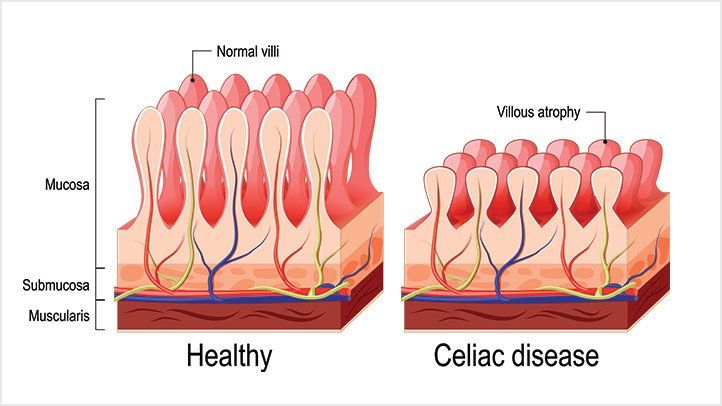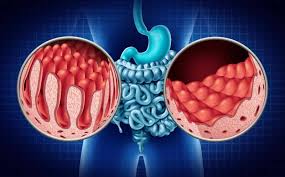Coeliac Disease
Coeliac disease is an autoimmune disorder where consuming gluten damages the small intestine lining.
Symptoms of Coeliac Disease
Symptoms include diarrhea, bloating, weight loss, and fatigue, triggered by gluten-containing foods like wheat, barley, and rye.
List of Symptoms:

Causes and Risk Factors of Coeliac Disease
Coeliac disease is caused by an immune reaction to gluten, found in wheat, barley, and rye. Risk factors include genetic predisposition, family history of the disease, other autoimmune disorders, and environmental factors like gastrointestinal infections during childhood.

Diagnosis of Coeliac Disease
Diagnosis involves blood tests to detect antibodies, a biopsy of the small intestine, and assessing response to a gluten-free diet to confirm the condition.
FAQs about Coeliac Disease
Frequently Asked Questions
FAQs explain gluten intolerance, symptoms, diagnostic methods, and the importance of following a strict gluten-free diet.

